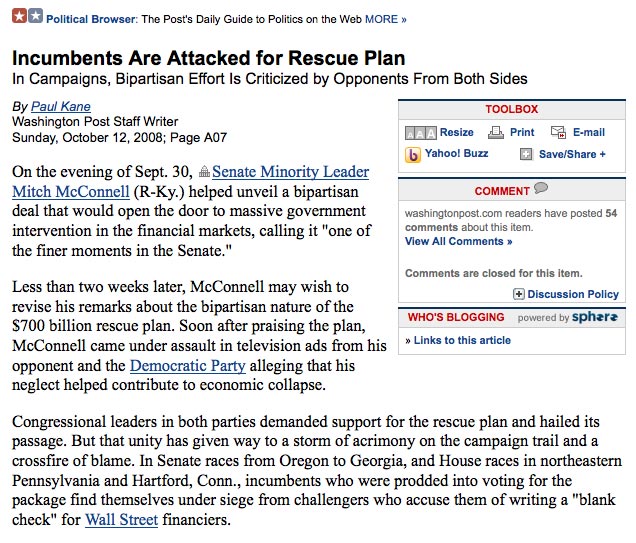Danish journalists pen link manifesto, which should be an inspiration for journalists everywhere in 2009.
The last quarter of 2008 did not only open our eyes to how flawed the fiscal economy is, in Scandinavia more and more journalists also realised how awkwardly media organisations operate in the link economy.
In Norway, the union chapel at DN.no, the news site of the country’s biggest financial daily, suggested introducing a common link policy for all the country’s news sites to make it profitable to produce good original articles rather than just to copy-paste.
In Denmark, a survey by eJour found just two links to external sites when monitoring seven Danish news sites over a period of two weeks. Blogging journalists in Denmark were also up in arms over a renewed effort by Danish newspaper publishers to stop websites like Google News from linking to individual articles rather than a newspaper’s homepage.
Against this backdrop, Kim Elmose, the blog editor of Politiken.dk, and Lars K. Jensen, a project manager at Ekstrabladet.dk, launched a link manifesto and encouraged news rooms everywhere to write their own link commandments and use their manifesto freely.
Let’s hope this can inspire more and better linking on many a news site in 2009:
First law: We link to the sources for the data we use in our journalistic products. If we have read, seen or heard important new information on an external site – for instance about companies, people or surveys – we will link to it.
Second law: We link directly and precisely to the information we use from external sites. In this way we provide proper service to our readers rather than just linking to the front page of the external site.
Third law: We are precise in our information about where a link leads to; about who has produced the information we link to and when. The readers should know where it takes them when they follow a link.
Fourth law: We recognise that an article consisting of precise links to information that represents different angles on an issue is a journalistic product.
Fifth law: We are open to inbound links to our own news sites because we want to be an integrated part of the web’s ecosystem
Sixth law: We aspire to making it easier to link directly to our articles.
